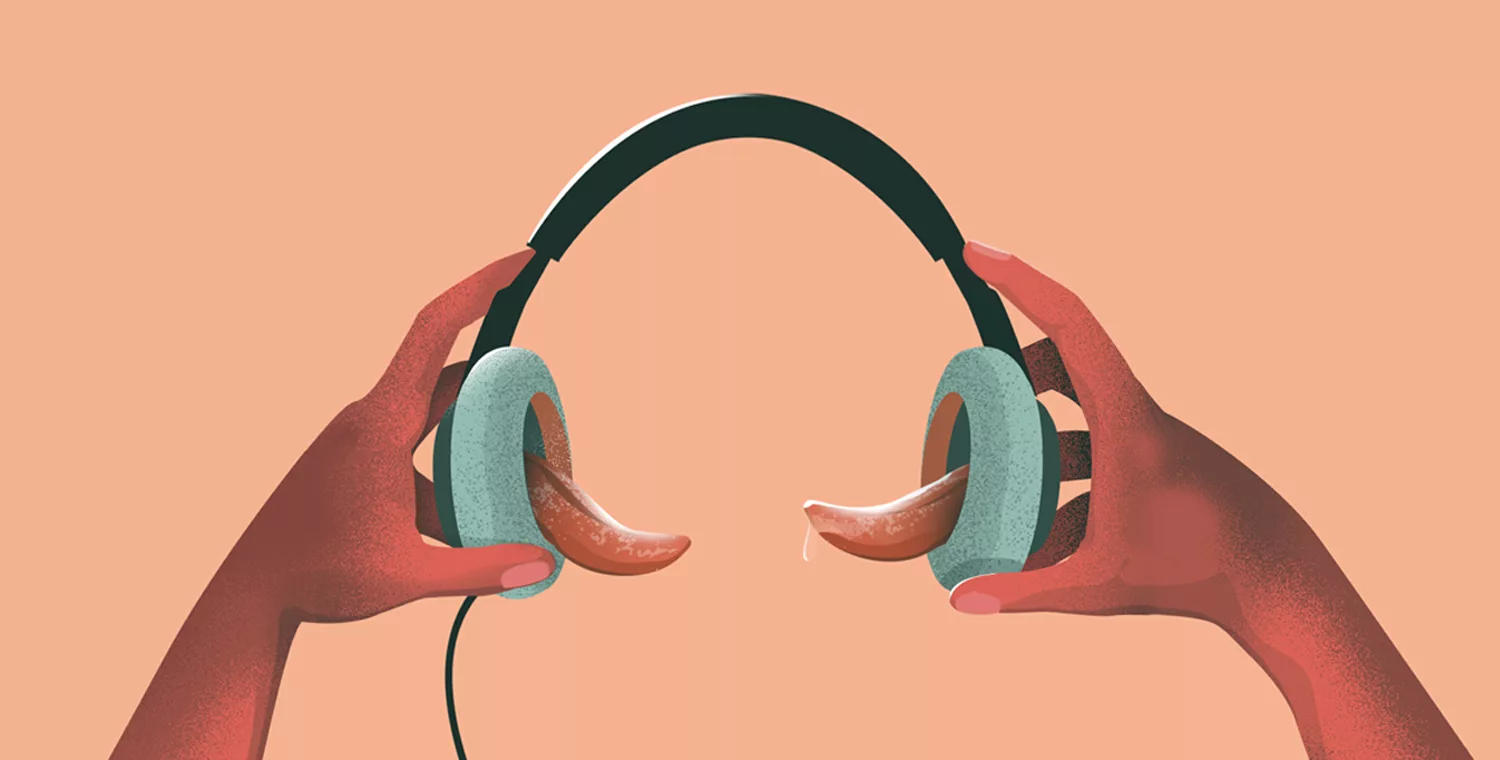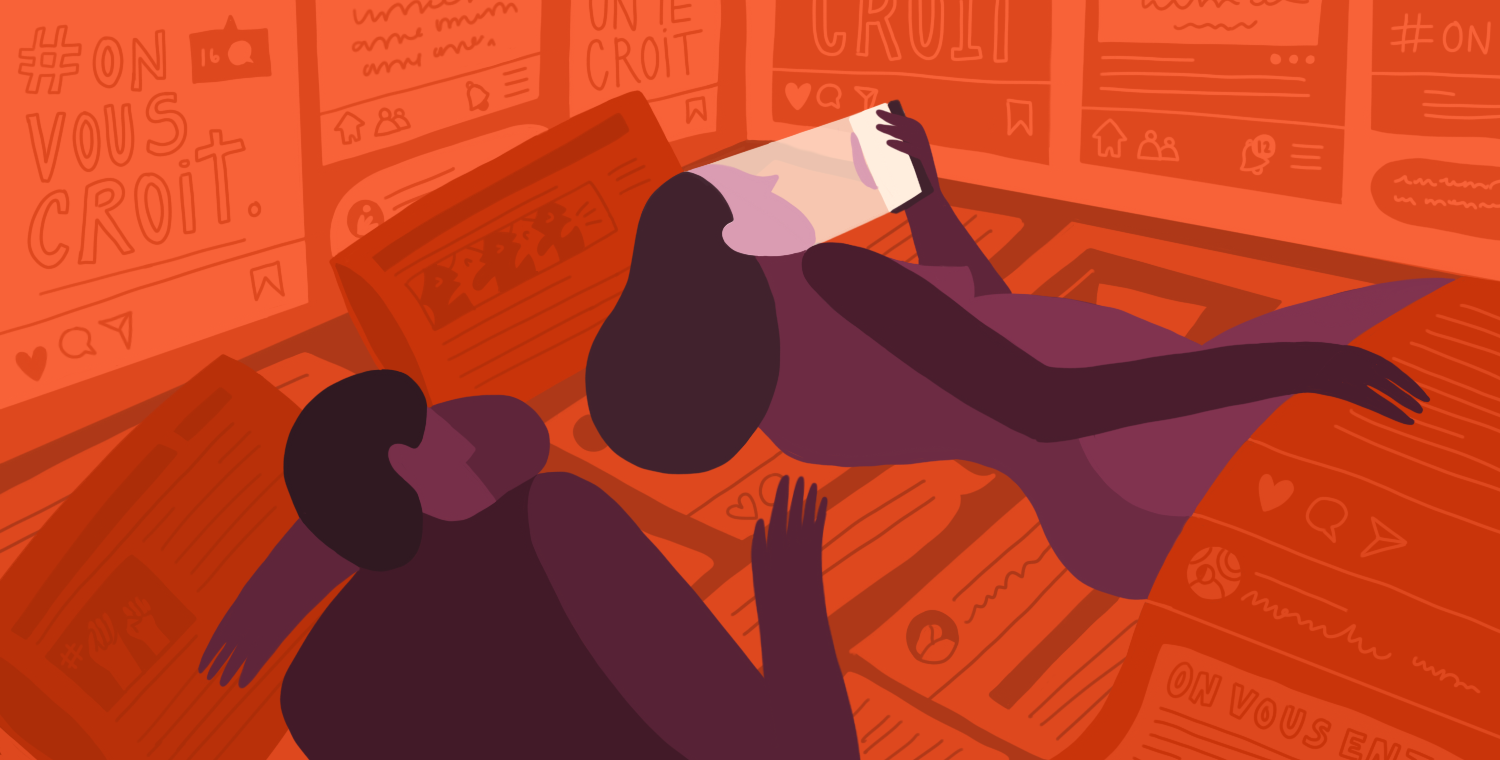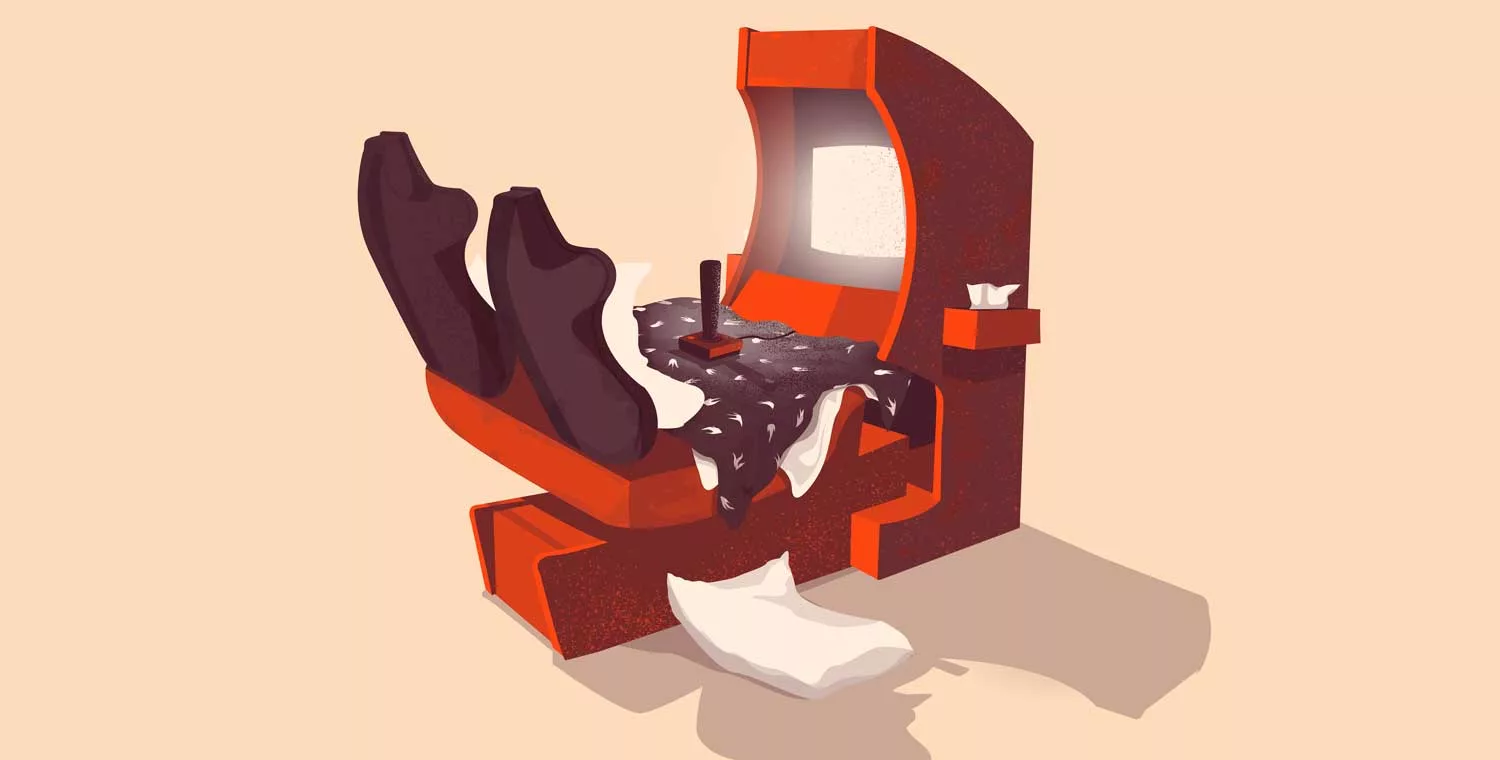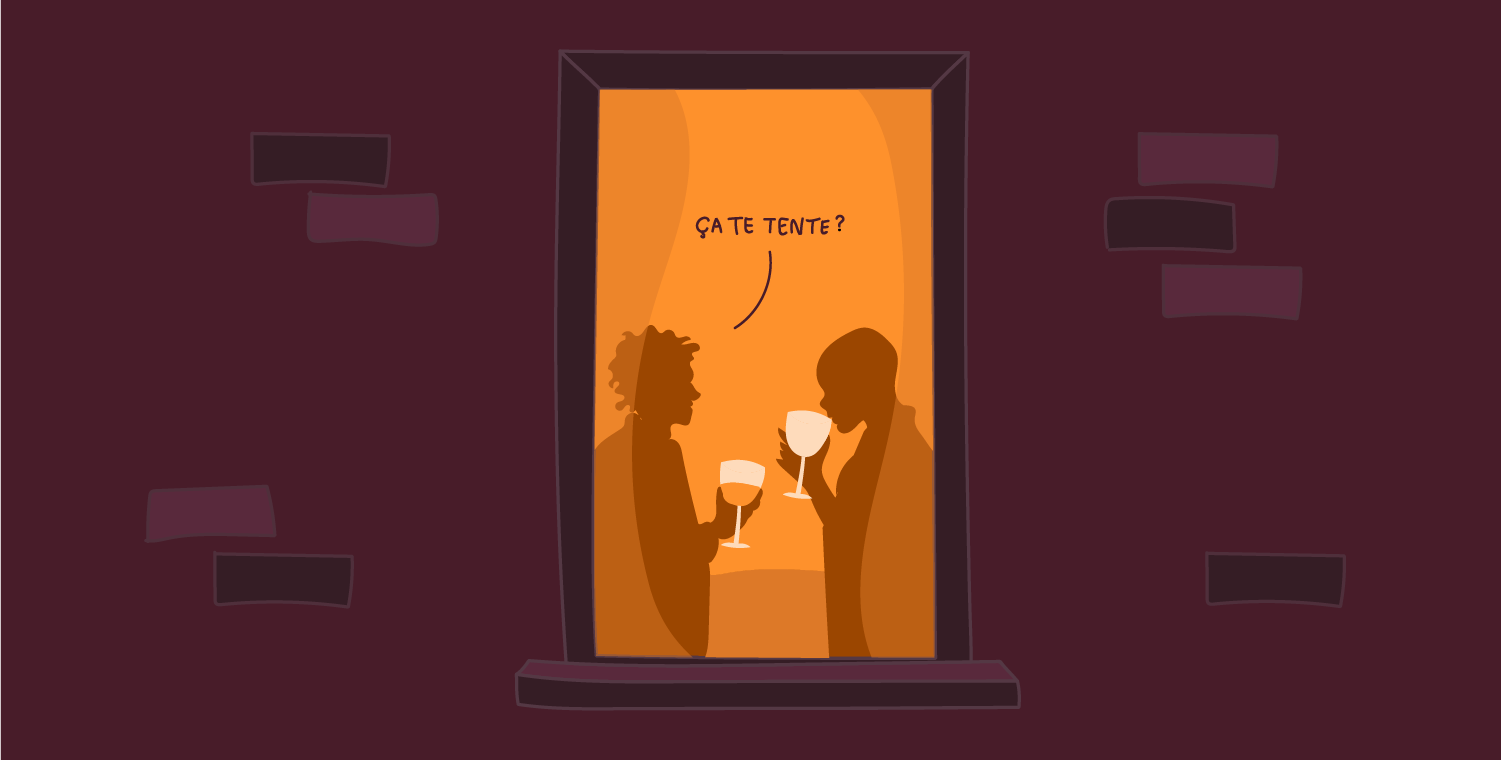Your cart is currently empty!
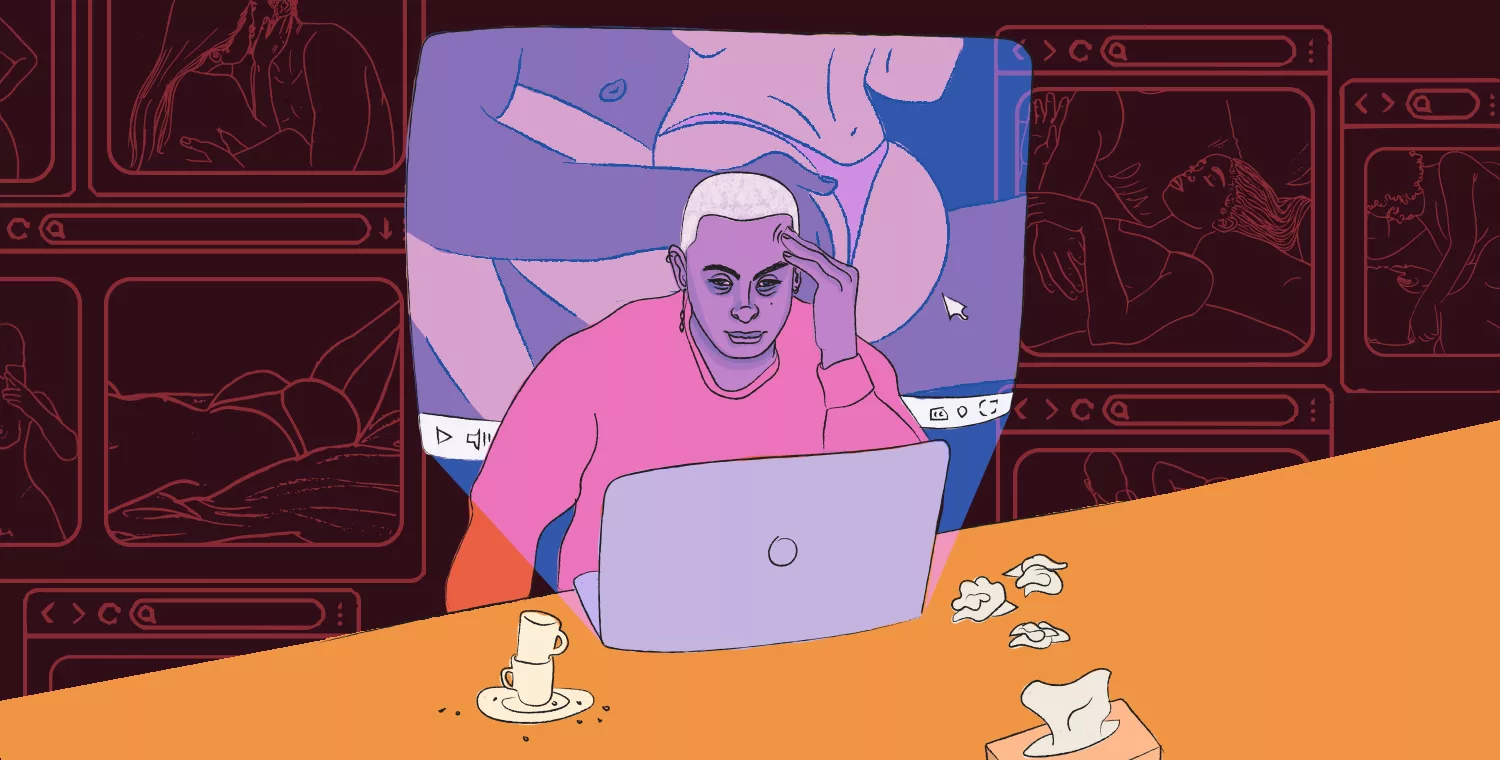
Can You Get Addicted to Porn?
This text has been annotated by Mélodie Nelson, author and former sex worker.
There are many articles, both in the press and in scientific journals, that warn people about the supposed dangers and harms of pornography. Porn is notably said to damage the brain and lead to addiction. Even Billie Eilish has testified to the negative effects pornography consumption has had on her well-being!
Given that this kind of discourse is nothing new and that sexuality has historically been fraught with unfounded fears, beliefs, and taboos (Horowitz, 2002), I admit to being skeptical of such claims.
But should I be? What does the research say?
Can You Get Addicted to Porn?
Some of the articles warning people of pornography’s harmful and dangerous effects argue that its consumption rewires the brain, thereby causing permanent “damage”.
The problem with this argument is that everything—literally everything—rewires the brain (Doidge, 2007). Every day, our brains are changing constantly: continuously forming and losing neural connections. Any experience, including learning—falling in love, learning a second language, experiencing an act of violence, you name it—transforms the brain’s neurology, especially (but not exclusively) when repeated.
Even while you’re reading this article, your brain undergoes changes due to the actions of reading and assimilating its content. This is why it’s therefore completely normal to find some brain differences between people who use porn and those who don’t (Love et al., 2015). And if you can learn and forget a language, then you can also experience increases and decreases of interest in porn.
So, why do we insist on this discourse when it comes to pornography and not, for example, when it comes to bilingualism? Probably simply because the first is tinged with taboos, misunderstandings, and moralizing judgments, while the second is not.
Can you become “addicted” to porn?
“I think I might be watching a bit too much porn. I think I use it as a crutch. It can therefore be both an aid and a burden. When I watch too much of it, I feel that my imagination is less effective than when I don’t watch any.”
Just as some people believe you can get “addicted” to vibrators, many believe you can get “addicted” to pornography, especially if you watch “too much” of it.
In the fall of 2021, as part of the one month without porn challenge, Club Sexu posted an online survey, to which 454 followers responded. The results showed that more than half of participants (57%) reported feeling good about the frequency of their porn use, while 35% reported feeling ambivalent, and 8% felt bad about it.
Those who felt bad or ambivalent reported feeling ashamed or guilty about their pornography consumption. They felt addicted to porn or were afraid of becoming addicted. Many also questioned the normality of the frequency of their porn consumption and feared that it would lead to sexual problems with their partners.
The people who felt good about the frequency of their porn consumption said that this was the case precisely because they didn’t feel the need to watch porn to be able to masturbate or experience pleasure, and because they felt that they didn’t watch it very often. In short, they felt good because they didn’t perceive themselves as being addicted to porn. Also, according to the data, the more often people reported watching porn, the less good they felt about the frequency of their porn use.
“As a woman, I feel that my porn consumption is a bit unhealthy (5 times a week on average).”
The issue of porn addiction is therefore very present for many people. However, “sex addiction” and “pornography addiction” do not exist as diagnoses in either the Diagnostic and Statistical Manual of Mental Disorders (DSM-V) or the International Classification of Diseases (ICD-11), given the lack of scientific evidence indicating that they are distinct disorders.
So then, how is it that so many people report having a pornography addiction that causes them anguish and distress?
The importance of attitudes and morality
It turns out that the moral context in which pornography is watched has a lot to do with it. According to Fisher and colleagues (2019), certain individual traits, such as impulsivity and sensation-seeking (yeehaw!), can make a person more likely to consume pornography in a dysregulated way, and consuming “a lot” of porn can then have a direct impact on their relationships and overall well-being.
Often, the person ends up connecting the dots and concludes that pornography is the source of their problems. However, according to Fisher and his colleagues, the real source of the problems is rather moral dissonance: in this case, watching porn and experiencing pleasure from it while also having negative attitudes towards pornography. This moral dissonance can lead the person to think that they have a “porn consumption problem” and experience psychological distress.
According to other studies, these authors are right on the money.
Research shows a robust link between religiosity and the perception of being “addicted” to porn (De Jong et Cook, 2021; Grubbs et al., 2015; Volk et al., 2016). By the way, these findings persist even after accounting for the frequency of porn consumption! This means that it’s not really the frequency of porn consumption that makes a person feel more (or less) addicted to porn, but rather how religious they are.
“As a Christian, I shouldn’t be watching any.”
In the same line of thought, porn’s negative effect on sexual satisfaction also depends on the moral context in which it is watched (De Jong et Cook, 2021; Floyd et al., 2020; Perry et Whitehead, 2019). According to Perry and Whitehead’s (2019) study, contrary to the sexual satisfaction of religious men, that of non-religious men is unaffected by porn consumption. Even having negative attitudes towards pornography that are not grounded in religious belief has been shown to be associated with lower relationship satisfaction (Maas et al., 2018).
The link is intuitive and logical: if you think porn is bad, then it’s normal to feel guilty and ashamed of watching it. Unsurprisingly, there’s plenty of research showing a link between sexual dissatisfaction and sexual shame and guilt, especially among religious people (Hackathorn et al., 2016; Marcinechová et Záhorcová, 2020).
Guilt and shame are deeply ingrained in the relationship that many people have with their porn consumption, though especially with its content. According to our own survey data, while more than half of people (57%) reported feeling good about the content of the porn they watch, one third (33%) reported feeling ambivalent, and 10% felt bad about it. People who felt bad and ambivalent mostly reported feeling ashamed or guilty because of a significant discrepancy between their personal values and the sexual fantasies, desires, and interests that were represented in the pornography they watched (hello, moral dissonance!).
“I watch all kinds of pornography, but sometimes I’m attracted to very young people. I think they’re adults, but I’m not sure. Teens aged 16 to 18 with adult bodies but young faces. I feel a little uneasy after watching those kinds of videos [post-nut clarity/discomfort?]. I would never turn to people this young in real life. It remains a fantasy.”
More specifically, according to our survey results, people who felt bad about the content of the pornography they consume were significantly more likely to have reported enjoying watching scenes presenting physical or psychological power play compared to the people who felt good or ambivalent. Similarly, people who felt ambivalent were more likely to have reported enjoying watching scenes that present non-normative themes (e.g., fetishes) than people who felt good.
Yet these two types of fantasies—power play and non-normative themes—are not uncommon. According to one study, only 4% of men and 7% of women have never had the former fantasy, and almost half of people reported having had the latter (Lehmiller, 2018). So, if you’ve ever had any of these fantasies, rest assured: you’re clearly not alone!
In short, it would seem that the problem is not porn per se, but moralizing judgments and sex-negative attitudes.
“Oh boy. OK. So I’m pretty embarrassed about my weird kinks. Some are more common, even though they’re weird, like rape fantasies. On the other hand, incest, hentai, tentacles and bestiality, I feel VERY weird fantasizing about those. Especially incest and bestiality. For bestiality, what makes it even worse [though it’s already weird AF], is that there’s no way to obtain an animal’s consent.”
-
Anderson P., Boteach S. (2016), Take the Pledge: No More Indulging Porn. Wall Street Journal. https://www.wsj.com/articles/take-the-pledge-no-more-indulging-porn-1472684658
Collins B., Zadrozny B., (2017), The Man Who Wants to Tax Porn Thinks His Past Assault Case Is “Fake News”. The Daily Beast. https://www.thedailybeast.com/porn-filter-campaigner-has-been-convicted-of-harassment-and-assault
De Jong, D. C. et Cook, C. (2021). Roles of religiosity, obsessive–compulsive symptoms, scrupulosity, and shame in self-perceived pornography addiction: A preregistered study. Archives of Sexual Behavior, 50(2), 695-709. https://doi.org/10.1007/s10508-020-01878-6
De Montaigu, T. (2015) Voyage autour de mon sexe. [Journey around my sex]. Grasset.
Doidge, N. (2007). The brain that changes itself: Stories of personal triumph from the frontiers of brain science. Penguin Books.
Doucet. P. (2020). Ces tabous tenaces. La masturbation, la pornographie et l’éducation. [These stubborn taboos: Masturbation, pornography, and education]. Québec Amérique.
Fisher, W. A., Montgomery-Graham, S. et Kohut, T. (2019). Pornography problems due to moral incongruence. Archives of Sexual Behavior, 48(2), 425-429. https://doi.org/10.1007/s10508-018-1291-7
Floyd, C. G., Landa, S., Saunders, M. A. et Volk, F. (2020). The moderating influence of moral disapproval of pornography on couples’ sexual and relationship satisfaction. Journal of Sex & Marital Therapy, 46(7), 660-682. https://doi.org/10.1080/0092623X.2020.1783409
Gallop C. (2016) Pamela Anderson is wrong: we shouldn’t stop watching porn. We just need to change our attitude towards it. Independent. https://www.independent.co.uk/voices/pamela-anderson-is-wrong-we-shouldn-t-stop-watching-porn-we-just-need-to-change-our-attitude-towards-it-a7221621.html
Grubbs, J. B., Exline, J. J., Pargament, K. I., Hook, J. N. et Carlisle, R. D. (2015). Transgression as addiction: Religiosity and moral disapproval as predictors of perceived addiction to pornography. Archives of Sexual Behavior, 44(1), 125-136. https://doi.org/10.1007/s10508-013-0257-z
Hackathorn, J. M., Ashdown, B. K. et Rife, S. C. (2016). The sacred bed: Sex guilt mediates religiosity and satisfaction for unmarried people. Sexuality & Culture, 20(1), 153-172. https://doi.org/10.1007/s12119-015-9315-0
Horowitz, H. L. (2002) Rereading sex: Battles over sexual knowledge and suppression in ninteenth-century America. Knopf.
Kipnis L.(2015), “Comment se saisir de la pornographie?”, dans F. Voros (dir), Cultures pornographiques. Anthologie des porn studies. [Pornographic Cultures: An Anthology of Porn Studies] (29–42). Éditions Amsterdam.
Lehmiller, J. J. (2018). Tell me what you want: The science of sexual desire and how it can help you improve your sex life. Da Capo Lifelong Books.
Ley, D., Prause, N. et Finn, P. (2014). The emperor has no clothes: A review of the ‘pornography addiction’model. Current Sexual Health Reports, 6(2), 94-105. https://doi.org/10.1007/s11930-014-0016-8
Love, T., Laier, C., Brand, M., Hatch, L. et Hajela, R. (2015). Neuroscience of Internet pornography addiction: A review and update. Behavioral Sciences, 5(3), 388-433. https://doi.org/10.3390/bs5030388
Maas, M. K., Vasilenko, S. A. et Willoughby, B. J. (2018). A dyadic approach to pornography use and relationship satisfaction among heterosexual couples: The role of pornography acceptance and anxious attachment. The Journal of Sex Research, 55(6), 772-782. https://doi.org/10.1080/00224499.2018.1440281
Marcinechová, D. et Záhorcová, L. (2020). Sexual satisfaction, sexual attitudes, and shame in relation to religiosity. Sexuality & Culture, 24(6), 1913-1928. https://doi.org/10.1007/s12119-020-09727-3
Maltz W. et Maltz L. (2010), The Porn Trap: The Essential Guide to Overcoming Problems Caused by Pornography, Harper Collins.
Perry, S. L. et Whitehead, A. L. (2019). Only bad for believers? Religion, pornography use, and sexual satisfaction among American men. The Journal of Sex Research, 56(1), 50-61. https://doi.org/10.1080/00224499.2017.1423017
Villarreal, D. (2018, 20 mars). Inside the troubling history of Chris Sevier, the anti-gay activist, who wants to marry his laptop. Hornet. https://hornet.com/stories/chris-sevier-marry-a-laptop-2/
Volk, F., Thomas, J., Sosin, L., Jacob, V. et Moen, C. (2016). Religiosity, developmental context, and sexual shame in pornography users: A serial mediation model. Sexual Addiction & Compulsivity, 23(2-3), 244-259. https://doi.org/10.1080/10720162.2016.1151391

If reading this article has piqued your curiosity, there’s an episode of our podcast, À quoi tu jouis?, that tackles the myths and realities of pornography (available in French only).



